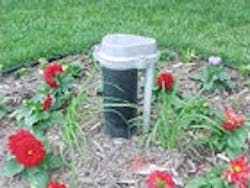WQA Discusses Well Water Treatment Options in Congress
Members of Congress received information March 27 from the Water Quality Association (WQA) about methods to help ensure safe well water, as a new study revealed the extent of contamination in the nation’s groundwater.
WQA attended a congressional briefing sponsored by the US Geological Survey’s (USGS) National Water Quality Assessment Program and the Water Environment Federation (WEF).
During the briefing, the USGS released findings on samples of more than 2,000 wells. “It is vital for public policy makers to understand what tens of millions of Americans are ingesting and how they can be helped,” said Peter Censky, executive director of WQA.
Nearly 45 million people rely on private wells for drinking water, which is not regulated by the federal Safe Drinking Water Act. According to news reports in previous months, almost one in six Americans may be affected by pharmaceuticals in their household water. Additionally, many other contaminants are often present, either from natural or human sources.
WQA, a not-for-profit alliance of water treatment companies, has become a resource for consumers and public policy makers seeking information about the issue. WQA offers an online fact sheet with answers to the issue of contaminants in water, available at wqa.org. Copies of the fact sheet were provided to members of Congress.
WQA has also joined a task force to develop independent testing standards that will be able to tell consumers what devices are successful at removing many of these newly discovered contaminants.
Filtering systems in the home provide the highest technology available for treatment of drinking water, according to Dave Loveday, director of government relations for WQA. According to a scientific opinion poll conducted for WQA, 50% of Americans believe federal laws governing drinking water are not strict enough. The random sample surveys, conducted by Applied Research-West, Inc., were released by WQA in 2008.
Only 34% of respondents stated that they believed federal drinking water quality laws are “fair.” Additionally, 38% said they do not believe their municipality is doing everything it should to make sure water reaching their home is safe to drink.
Overall, just over two-thirds of Americans—67%—are generally concerned about the quality of their household water supply. Americans seem to increasingly believe that responsibility for safe drinking water is a public/private partnership. Seventy percent said they believe that home filtration plays a role, along with their municipality, in ensuring safe drinking water.
For a copy of the WQA fact sheet on drinking water safety and related information, visit the “Breaking News” button on the WQA home page, wqa.org.
Source: WQA
